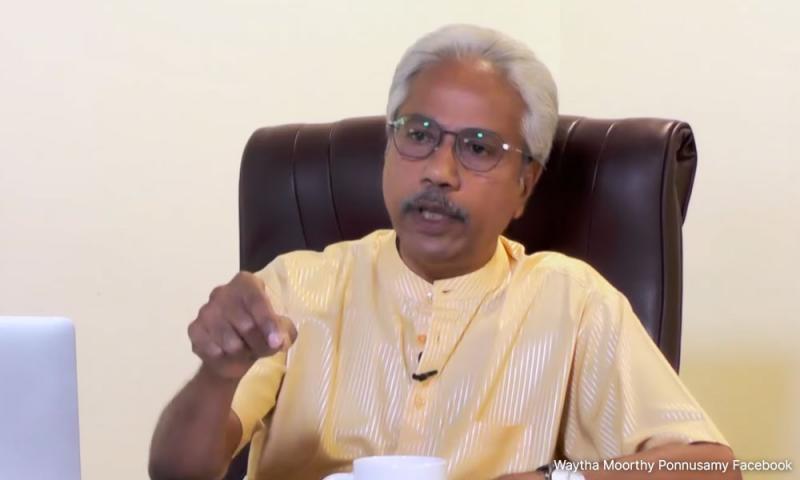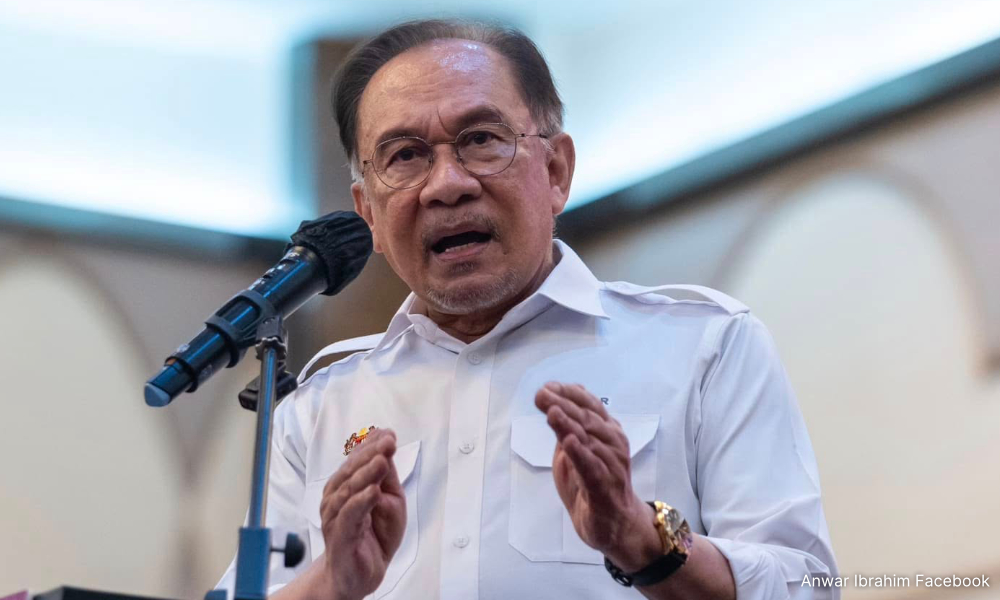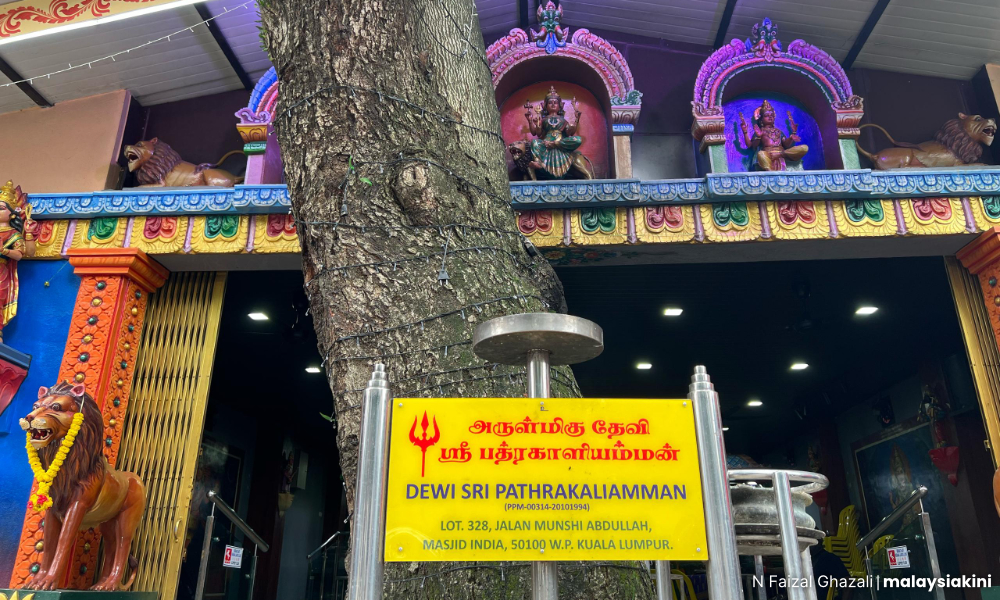

MAP renews call for special cabinet meet amid 'rising anti-Hindu sentiment'
Published: Apr 24, 2025 12:36 PM
Updated: 2:39 PM
Summary
- Malaysian Advancement Party (MAP) chairperson P Waytha Moorthy is demanding answers from Prime Minister Anwar Ibrahim.
- He also claims that the authorities have failed to act against hate speech and false narratives.
The Malaysian Advancement Party (MAP) has reiterated its call for Prime Minister Anwar Ibrahim to convene a special cabinet meeting amid what it described as “rising anti-Hindu sentiment” in Malaysia.
The renewed call follows reports of a food delivery rider’s religious slur against a teacher in Penang, which is the subject of a police investigation.
MAP chairperson P Waytha Moorthy said he had provided “well-justified and historically grounded demands” in his March 25 letter to Anwar, calling for a special cabinet meeting amid the controversial relocation of the Dewi Sri Pathrakaliamman Temple in Kuala Lumpur.
“Anwar must immediately provide a clear and substantive explanation to the Malaysian public as to why he has refused to convene the special cabinet meeting,” he said in a statement.
Waytha (above) also urged the government to come clean on several “critical failures”, including inaction on open threats and hate speech.

“Why has no action been taken against those inciting racial and religious hatred, despite clear evidence?” he asked.
The MAP president further accused the MCMC of failing to curb online hate and false narratives against Hindu temples.
Lack of prosecutions
On a related note, Waytha questioned the lack of prosecutions against certain preachers, despite hundreds of police reports being lodged.
“Why have no arrests or charges been made against extremist preachers who repeatedly insult Hinduism, spread fake news about temple legality, and use demeaning terms like 'kuil haram' - a phrase designed to demoralise and dehumanise the Hindu community?” he asked.
Referencing Anwar’s March 25 speech, in which the prime minister stated that the 130-year-old Dewi Sri Pathrakaliamman Temple was built without permission, the MAP president said it reflects a “shocking disregard” for the historical and legal foundations of Hindu temples in Malaysia.
“His failure to address these issues proves a dangerous indifference to the escalating anti-Hindu rhetoric and systematic discrimination faced by the Indian community.
“My letter explicitly called for a special cabinet meeting to address the historical, legal, and policy failures that have led to the current crisis,” he added.
Answers needed
Waytha emphasised that the government must publicly release all relevant records and provide transparent answers on the following points:
British Colonial policies: How did British authorities, with the consent of Malay Rulers, facilitate Indian migration and temple construction?
Early laws on migration and temples: Were there formal regulations recognising Hindu temples?
Policy evolution (1800s–1900s): How did colonial and post-independence policies shape temple status?
Straits settlements (Penang and Malacca): What legal protections existed for Indian communities and temples?
Post-independence repatriation: Was the forced repatriation of multi-generational Malaysian Indians ever seriously considered, given their irreplaceable economic role?
“My letter explicitly called for a special cabinet meeting to address the historical, legal, and policy failures that have led to the current crisis,” he added.
Answers needed
Waytha emphasised that the government must publicly release all relevant records and provide transparent answers on the following points:
British Colonial policies: How did British authorities, with the consent of Malay Rulers, facilitate Indian migration and temple construction?
Early laws on migration and temples: Were there formal regulations recognising Hindu temples?
Policy evolution (1800s–1900s): How did colonial and post-independence policies shape temple status?
Straits settlements (Penang and Malacca): What legal protections existed for Indian communities and temples?
Post-independence repatriation: Was the forced repatriation of multi-generational Malaysian Indians ever seriously considered, given their irreplaceable economic role?

1957 temple recognition: How were British-era temples formally acknowledged at independence?
Merdeka Constitutional Conference (1955–1957): Were temple rights and Indian citizenship discussed with the Reid Commission?
Post-1957 policies: What measures were taken to protect pre-independence temples?
Torrens System and National Land Code (1965): How did this radical land law shift destabilise Hindu temple ownership?
Post-1965 policies: Did the government intentionally neglect temple rights after land reforms?
National Development Plans: Have Hindu temples ever been included in Malaysia’s development agenda?
13th Malaysia Plan and Marginalisation: Will the government finally address the historical exclusion of Indians from mainstream development?
No comments:
Post a Comment